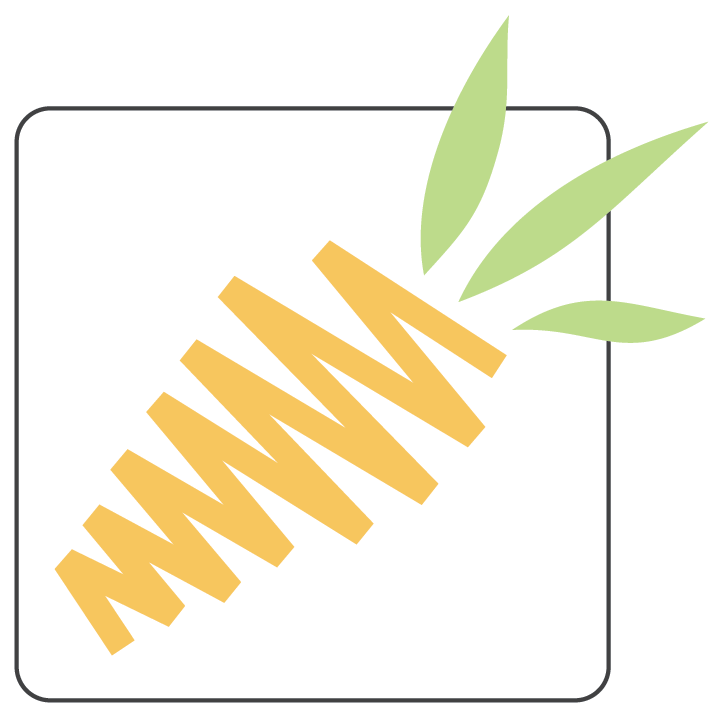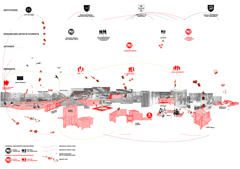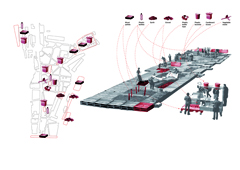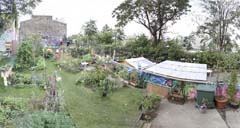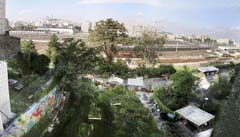Ecobox
Exhibit Category / Catégorie de l'expo: Community & Knowledge
Location/Emplacement: 8 - 10 impasse de la Chapelle - Paris 18e - France
Dates: 2001 - present
Designers/Concepteurs: Atelier d’Architecture Autogérée; Association ECObox
Clients: n/a
More Information/Plus d'informations: http://www.urbantactics.org
Image Credits/Crédits d'images: Atelier d’Architecture Autogérée; Association ECObox
Project Description: (version française ci-dessous)
ECObox is a series of self-managed projects introduced into derelict and underused spaces in Paris’ La Chapelle neighbourhood, in the 18th Arrondissement, beginning in 2001. These projects took form under the guidance of the Atelier d’Architecture Autogérée (aaa – Studio for Self-Managed Architecture), a non-profit, interdisciplinary organization that conducts research and experiments in progressive, sustainable community infrastructure development. Originally constructed in the court of the Halle Pajol, ECObox was intended as a platform for community events and for engaging local residents in ‘micro-politics’ through cultivation and other activities.
ECObox projects take their form from a system of recycled shipping pallets laid out in a grid to form a series of walkways and garden plots. The shipping pallets are laid directly on the ground, two pallets deep. Voids left between them are filled with soil and used by community members as small allotment gardens. The result is a patchwork landscape of flowers and edible plants, created and tended by local community members, who thus take ownership in it. This allows for gradual expansion and upgrades of the garden by its users.
While clearly influencing the project, the founding members of aaa, architects Constantin Petcou and Doina Petrescu, insisted on remaining in the background, allowing untrained members of the community to bring their skills and experiences to the shared space. aaa remained involved in the project until 2006 after which the community successfully campaigned its continuation. This process saw the formation of the ECObox Association, which has managed the project since.
The simple construction of these gardens and their modular and mobile nature make them highly transferable to other sites. This was put to the test when the project was threatened with eviction and a new site had to be negotiated with the city in 2004 and again in 2008. The elements of the project were quickly and easily moved, minimally disrupting the continuity of the community’s activities.
Open on weekends and for special events, the current site at 8 – 10 impasse de la Chapelle hosts concerts, dances, film screenings, workshops and shared meals. It is also host to l’AMAP La Chapelle (a local association linking conscious consumers with agricultural producers) and it interacts with numerous other local entities including schools, artists, cultural centres and other gardens. Furthermore, it participates in movements such as Transition Town, Urban Orchards and others, preserving and growing the biodiversity and cultural diversity of Paris, while encouraging residents to have agency in their surroundings.
Browse for more projects in the Carrot City Index.
Description du Projet:
L’ensemble de projets appelé ECObox a été créé en 2001 dans des espaces délaissés du quartier La Chapelle, Paris 18e. Ce projet est initié par l’Atelier d’Architecture Autogérée (aaa), un organisme interdisciplinaire à but non lucratif qui effectue des recherches et mène des expérimentations dans le domaine le développement d’infrastructures communautaires innovantes et durables. Construit originalement dans la cour de la Halle Pajol, ECObox a été conçu comme un lieu d’événements communautaires, visant à engager les habitants dans les dynamiques « micro-politiques » à travers leurs pratiques des lieux.
Les jardins d’ECObox sont construits avec des palettes d’expédition qui, disposées à même le sol goudronné, forment une grille de parcelles séparées par des allées. Deux couches de palettes sont superposées, le centre est rempli de terre. Peu à peu les parcelles sont plantées de fleurs, aromates et plantes comestibles, les habitants du quartier prenant ainsi possession du jardin qu’ils entretiennent et étendent progressivement.
Après avoir insufflé ce projet, les membres fondateurs d’aaa, les architectes Constantin Petcou et Doina Petrescu, se retirent progressivement du projet. La mobilisation des habitants pour que le projet se pérennise conduit à la création de l’association ECObox, indépendante de AAA et autogérée par ses membres, qui gère depuis le site situé impasse de la Chapelle.
La simplicité de la construction et de ses éléments modulaires et mobiles permet de transporter aisément ce type d’aménagement sur d’autres sites. Cette mobilité a pu se vérifier quand, le projet étant menacé d’expulsion, un nouveau site a été trouvé pour accueillir Ecobox en 2004, puis de nouveau en 2008. Les éléments ont été facilement et rapidement déplacés, sans que cela ne perturbe la continuité des nombreuses activités collectives.
Ouvert le week-end et pour des événements comme des concerts, bals, projections, ateliers, repas, le jardin accueille l’AMAP La Chapelle, interagit avec d’autres acteurs locaux (écoles, artistes, lieux culturels, jardins partagés) et participe aux mouvements des Villes en transition, des Vergers urbains, des Acteurs du Paris durable, contribuant à préserver et alimenter la biodiversité à Paris, ainsi que l’implication de chacun dans son espace quotidien.
Trouvez d’autres projets avec l’Index de Carrot City.
